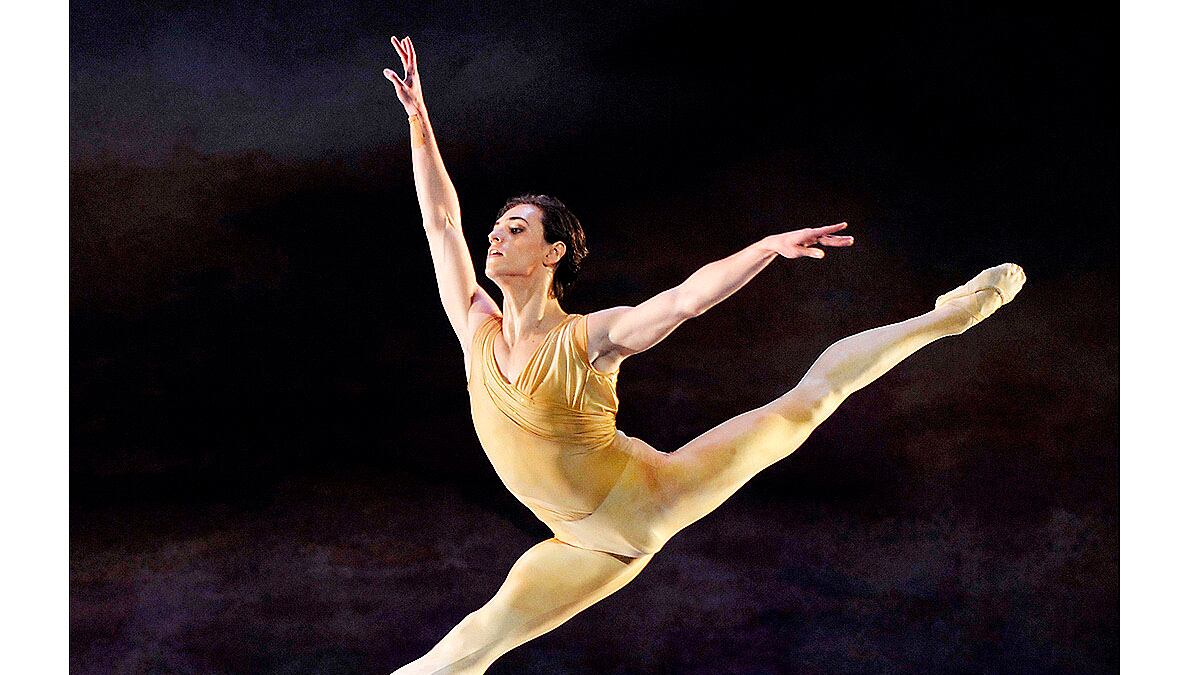It’s not often that ballet is a talking point for the British public. But the unfolding mystery of why Sergei Polunin, the volatile 21-year-old star of the Royal Ballet, should have dramatically quit the company on Tuesday, just days before his biggest ever performance—starring in a production of The Dream—is getting the most airtime since Rudolf Nureyev and Margot Fonteyn graced the popular imagination.

Commentators are mystified. Even in the small, gossipy world of ballet, no one has been able to provide a definitive answer as to what spurred Polunin, the youngest person ever to be made a principal at the company, to his dramatic action on Tuesday, when he apparently told the director of the Royal Ballet, Dame Monica Mason, that he was leaving immediately but declined to say why.
Dame Monica said, “This has obviously come as a huge shock. Sergei is a wonderful dancer, and I have enjoyed watching him tremendously, both onstage and in the studio, over the past few years. I wish him every success in the future.”
ADVERTISEMENT
Polunin himself had given no indication to his fellow performers that he wanted to quit the prestigious company but did tweet on Monday, “Just have to go through one night!!! then will make my next moves.” On New Year’s Eve, he tweeted that this year was “going to be controversial:)!!!!!!!” (yes, that’s seven exclamation points, which proves that he really is 21).
He has now changed his profile to read: “Sergei Polunin: Principal Dancer of ?” In other tweets he has alluded to a “live fast die young” lifestyle and to starting the day with a beer, making him the closest thing ballet has to Amy Winehouse.
According to reports, frantic arrangements are now being made to ensure next week’s performance of The Dream still goes ahead, with a replacement coming in for Polunin. Some commentators have argued that the combination of the natural arrogance of youth and his meteoric rise—Polunin arrived in the U.K. in 2003 from the Ukraine when he was just 13, barely speaking any English, and four years later won the title Young British Dancer of the Year—may have imbued him with a false sense of his own brilliance and the desire to strike out on his own rather than being confined in a stuffy institution.
Philip Hensher in the Independent argues that Polunin was merely jumping the inevitable gun: “Polunin is still very young, and has only been dancing a very few seasons. Word, however, had begun to spread. In all these conventionally confined worlds, there is a moment where fame spreads outside the charmed circle of the usual audience, and large numbers of the general public start to think that they must find out what all the fuss is about. It happened with Moira Shearer, Fonteyn, Nureyev, Darcey Bussell, Carlos Acosta; it looked set to happen all over again with Polunin.”
Polunin owns a share in a tattoo shop in North London, and his business partner, tattooist Anthony Lammin, told the Daily Telegraph that the dancer was leaving London because he was bored: “London has limited him. He feels like he’s done everything he can do here. He just said he’s ready to leave. He didn’t even sound particularly upset, he sounded bored. I guess he’s just achieved so much at a young age. He mentioned Japan and said he’d like to look at America, but I don’t think he knows yet. London doesn’t let him be an individual: Sergei is just a product of the Royal Ballet. He wants some individual recognition. I guess he’s tired of doing the same thing. He wants to be more of an individual.”
Tired of London? Samuel Johnson would have been worried.
There have also been suggestions that Polunin’s move might be connected to the fact that as a staff dancer at the Royal Ballet, he has not been able to accept guest invitations to dance with the American Ballet Theatre and in Russia.
However the most compelling theory comes from the Guardian’s dance critic and blogger, Judith Mackrell, who interviewed Polunin just before Christmas. “There were moments when it felt as though there were two Polunins in the room,” she wrote. “There was the one who described the exhilarating physical kick he got from ballet … but then there was the Polunin who spoke almost angrily of the kid he might have been had he not been pressured into ballet by family duty—the kid who could have gone to football matches, knocked around the streets with his mates and got into trouble. And it’s tempting to imagine it’s that kid who was in charge when Polunin walked out of the Royal Ballet two days ago and went to ground in the tattoo parlor he co-owns and loves.”
Amazingly, the Polunin saga has even made it onto the television news in the U.K. (admittedly the minority Channel 4 News, not the BBC), with one of his peers, Ivan Putrov, appearing as a talking head.
Putrov suggested that Polunin did want to carry on in ballet, but working as a freelancer rather than being tied to a company so he could take and refuse whatever work he wanted.
In the end, of course, it’s probably a combination of greed, arrogance, ego–and a manifestation of the genuine mental turmoil that so many artistic souls do truly suffer from.
As Mackrell concludes, “At the point where he seems to be craving independence, Polunin may also be most in need of steady guidance. It’s the kind of guidance you would hope he would get from inside a company. And which some are hoping, even now, the Royal might be able to reach out to Polunin and persuade their prodigal son to return.”





